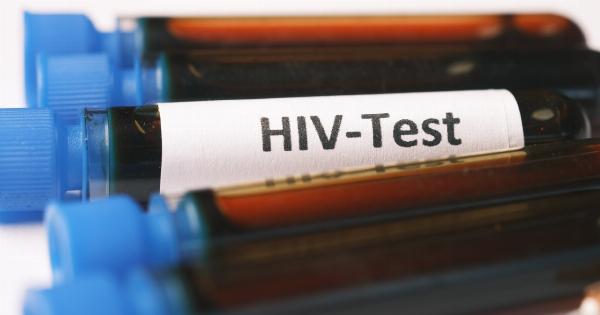When a person becomes infected by the Human Immunodeficiency Virus (HIV), the virus attacks and destroys important cells in the immune system called CD4+ T cells.
Over time, the virus can weaken the immune system to the point where it can no longer fight off infections and diseases, leading to the development of Acquired Immunodeficiency Syndrome (AIDS). However, there are some people who are able to live with HIV for many years without developing AIDS.
These individuals are known as long-term non-progressors (LTNPs) and their ability to control HIV without medical intervention is a rare phenomenon that has fascinated scientists for almost four decades.
What is HIV Immunity?
HIV immunity refers to the ability of certain individuals to either resist HIV infection or to live with HIV without developing AIDS. There are several categories of HIV immunity:.
HIV Resistant
Some individuals have a genetic mutation that makes them resistant to HIV infection. This mutation occurs in a gene called CCR5, which encodes a protein that HIV uses to enter CD4+ T cells.
People with this mutation have a non-functional CCR5 protein, which means that the virus cannot enter their cells and cause infection. The mutation is most common among people of European descent and is estimated to be present in about 1% of the population.
HIV Exposed Uninfected
Some individuals have been exposed to HIV but have not become infected. This can happen due to a variety of factors, including:.
- Low-virus exposure
- Resistance to HIV attachment and entry into CD4+ T cells
- Rapid clearance of the virus by the immune system
- Genetic factors that protect against HIV infection
Long-Term Non-Progressors (LTNPs)
As mentioned earlier, LTNPs are individuals who are able to live with HIV for many years without developing AIDS. These individuals represent less than 5% of all HIV-positive individuals.
LTNPs are able to control HIV through a combination of factors, including:.
- Strong cellular immunity: LTNPs have a strong immune response to HIV, which helps control the virus. They have high levels of CD4+ and CD8+ T cells, which are important in fighting off HIV.
- Genetic factors: LTNPs have certain genetic factors that are thought to play a role in their ability to control HIV. These factors include variations in the human leukocyte antigen (HLA) complex, which is involved in presenting viral antigens to the immune system.
- Viral factors: Some LTNPs have strains of HIV that are less virulent, meaning they are less harmful to the immune system.
Lessons from LTNPs
Studying LTNPs has been instrumental in advancing our understanding of HIV pathogenesis and immunity.
By identifying the factors that enable LTNPs to control HIV, researchers have been able to develop new therapeutic strategies for HIV-positive individuals. For example, some LTNPs have been found to produce highly potent neutralizing antibodies against HIV, which has led to the development of new antibody-based therapies for HIV.
Furthermore, studying the immune response of LTNPs may provide insight into the design of an effective HIV vaccine.
The Importance of HIV Testing and Treatment
While LTNPs provide hope for the future, it is important to remember that they are a rare phenomenon. The vast majority of individuals who become infected with HIV will not be able to control the virus without medical intervention.
This is why HIV testing and treatment are crucial in preventing the spread of the virus and reducing the number of AIDS-related deaths. Early HIV diagnosis and treatment can significantly improve outcomes for HIV-positive individuals by preventing or delaying the progression to AIDS.
Conclusion
HIV immunity is a rare phenomenon that has fascinated scientists for many years.
Understanding the factors that enable certain individuals to control HIV without medical intervention has led to new therapeutic strategies and may pave the way for the development of an effective HIV vaccine. However, it is important to remember that these individuals represent a small minority of all HIV-positive individuals. Early HIV diagnosis and treatment are crucial in preventing the spread of the virus and reducing the number of AIDS-related deaths.
























